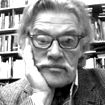A common theme of paranoid, visionary science fiction writer Philip K. Dick was the manipulation of reality by the powerful to suppress any undesirable tendencies toward self-emancipation by the masses, through drugs (The Three Stigmata of Palmer Eldritch and A Scanner Darkly), gambling (Solar Lottery), permanent war hysteria (The Penultimate Truth) or corporate entertainment.
Downtrodden proles live in a squalor ameliorated by a fantasy existence produced by ruling class psychological conditioning. Check.
In The Three Stigmata, published at the high tide of the Barbie age (1965) , it takes the form of Perky Pat/Barbie playsets and the drug Can-D, which for 15 minutes allows users to enter into a virtual reality experience.
For a quarter of an hour, you can live in Perky Pat’s Beverly Hills mansion or Perky Pat’s sports car: the full “Lifestyles of the Rich and Famous” until the Can-D wears off and the user falls to earth in his/her roach-ridden hovel.
Sound familiar? It ought to.
His extrapolation of trends in US society in the 1950s and ’60s has come to partial fulfilment in the age of reality TV, from which, it is pointless to deny, many derive comfort in an increasingly comfortless world.
From out of this world, grotesque reality TV president Trump has emerged – a Gothic figure who openly boasts about sexual assault and who is a Perky Pat fantasy fulfilment figure to many of his followers.
This cultural moment has produced apparently unending revelations of sexual extortions and impositions practised by powerful showbiz producers, stars and so forth, their victims usually powerless aspirants to film and stage careers.
A film company under current conditions is a capitalist workplace, not fundamentally different from many other workplaces where sexual harassment abounds, and where the same dynamics of a top-down authoritarian system act as a licence for perpetrators.
Frederick Engels, a sharp observer of his world, including the sexual exploitation of the workforce by northern mill owners, would find the contemporary scene familiar.
To the inhabitants of the ruling class ecosystem, their victims are just little objects to be manipulated.
This is in the nature of power; this is the reality of a class society with ever more concentrated financial and political dominance in which a microscopic minority decide the destinies of billions. This is a world in which a bank that has just declared a profit of $6 billion can casually announce that it is vaporising the livelihoods of 6,000 people; a world in which decisions of fateful consequence for the future of the biosphere are in the hands of a few hundred thousand people to whom the next quarter’s profit projections vastly outweigh the future of, among others, their own grandchildren.
To those who hear echoes of the ancien régime, a parasitic aristocracy dancing on the edge of the volcano, your hearing is good. Commenting on the Paradise Papers, the latest tax evasion racket of the 0.1 percent, an analyst said:
“It won’t be lost on wealth managers and those in the offshore industry that we are reaching sort of French Revolution levels of inequality and injustice.”
As long as power resides in a minority ruling class, it will be “abused”, i.e. used in ways that exceed the normative expectations of official culture and the legal system: wage theft, debt peonage, constant surveillance and invigilation, sexual harassment and so forth.
But the very existence of power is an abuse. Although it may be a distant goal, we have to strive toward a society in which no individual has power over any other individual.




